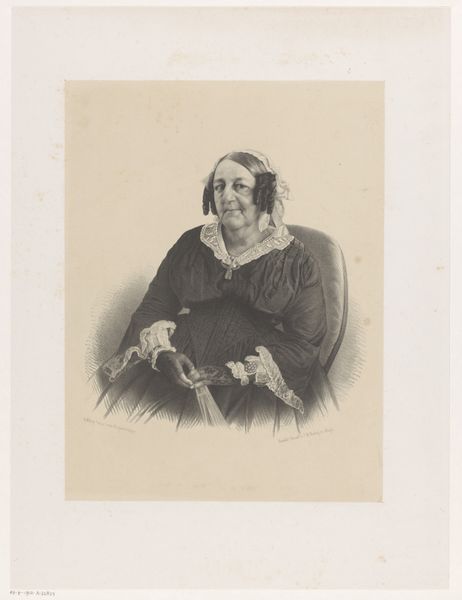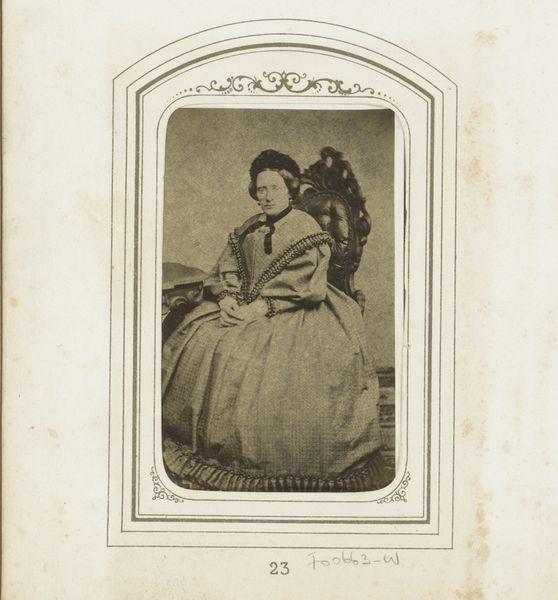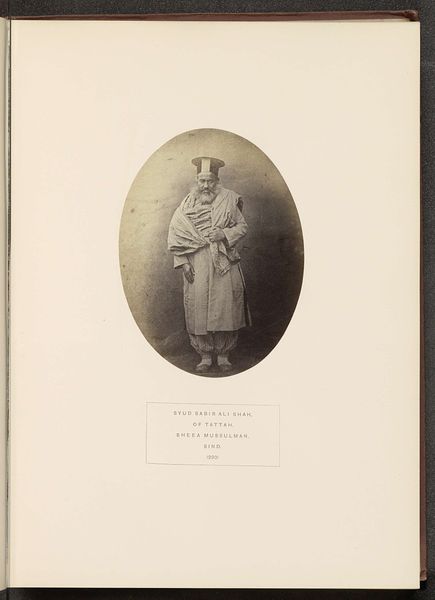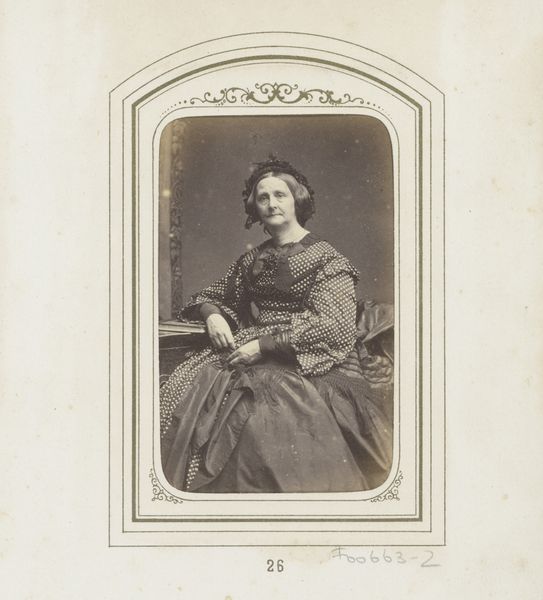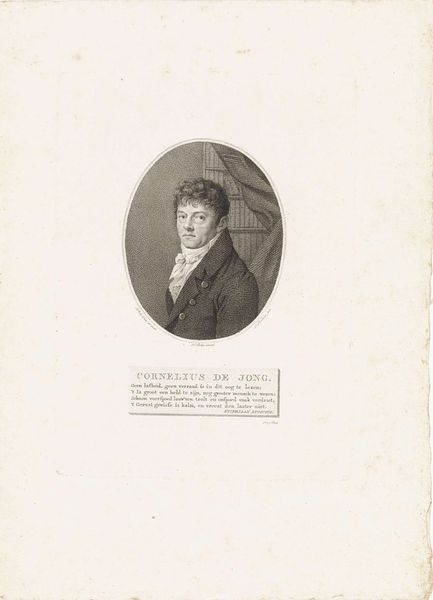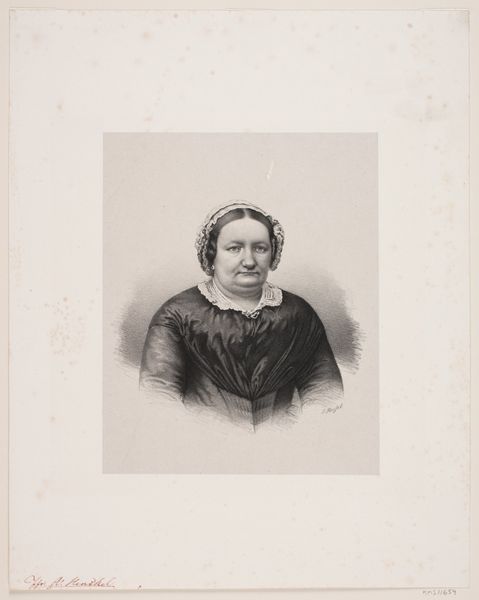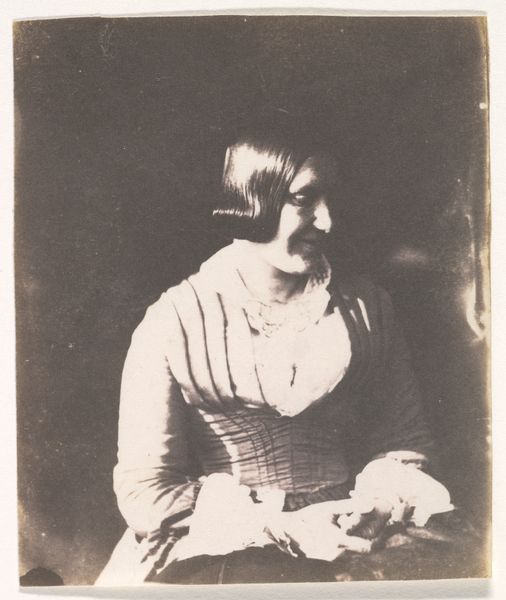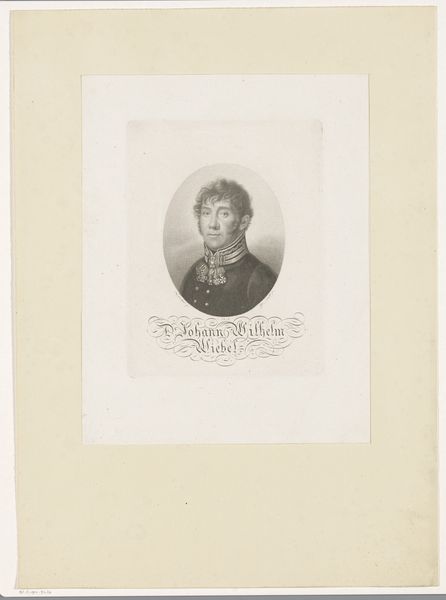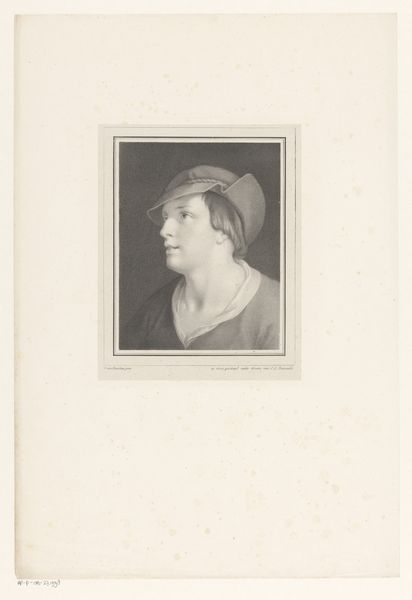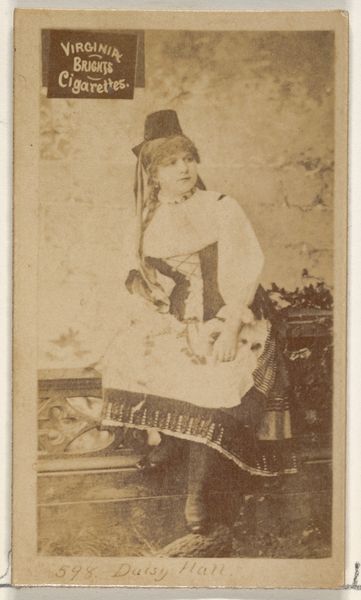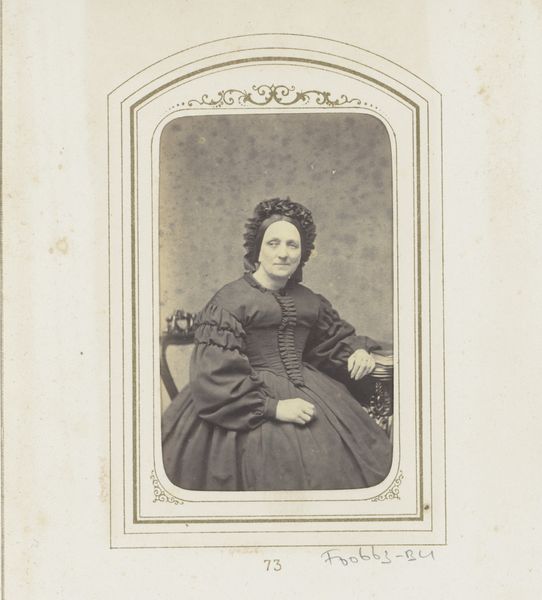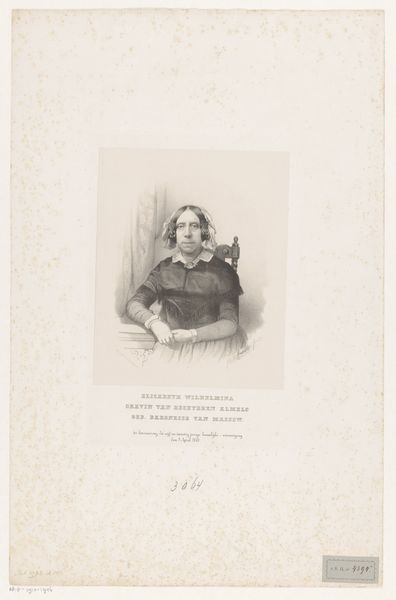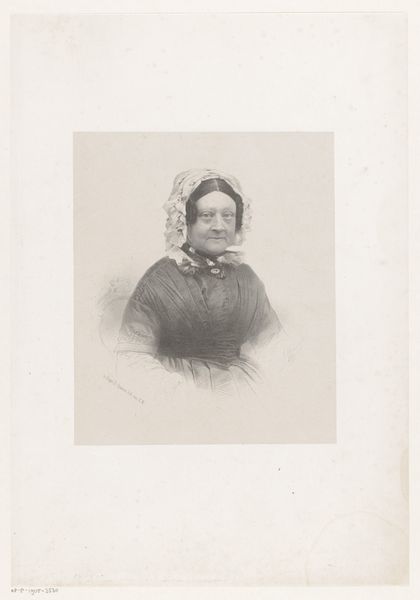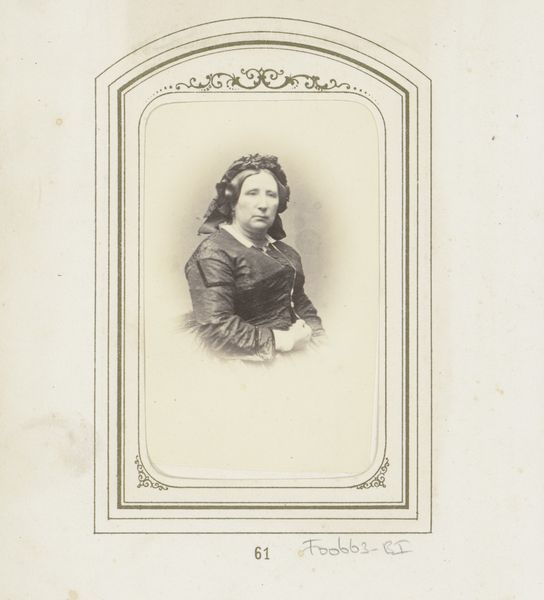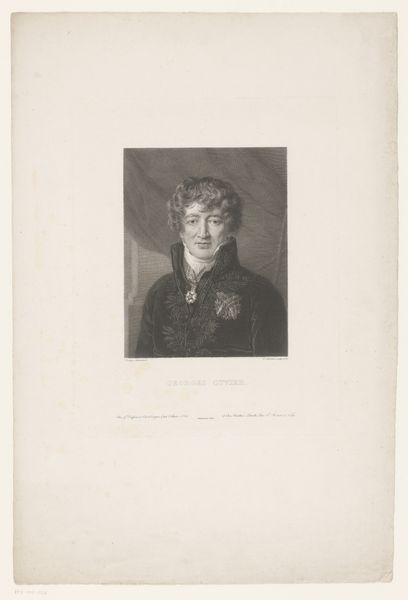
Dimensions: height 241 mm, width 173 mm
Copyright: Rijks Museum: Open Domain
Cornelis van Noorde made this print of Hendrik Tilly, who lived in a Dutch almshouse, using etching and engraving techniques. The image speaks volumes about the social structures of 18th-century Netherlands. Almshouses were charitable institutions for the poor, elderly, and often, the forgotten. This portrait commemorates an individual from the margins of society, and the print was made shortly before his death. Consider the institutional history: Did the artist intend to elevate Tilly's status, or was this a mere record for the almshouse? The inscription below his image states that he lived in the almshouse in Haarlem, was born in 1664, and was of sound mind and body. Was the artist trying to portray Tilly as a worthy recipient of charity? These are the kinds of questions that social historians explore, using sources like almshouse records, census data, and other visual representations to understand the complex relationship between art, the individual, and the societies they inhabit.
Comments
No comments
Be the first to comment and join the conversation on the ultimate creative platform.
